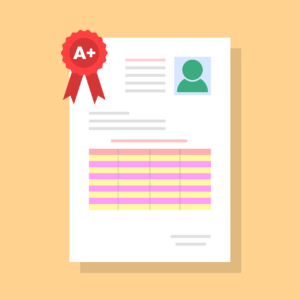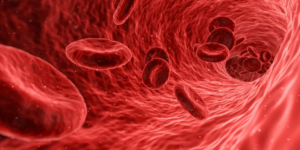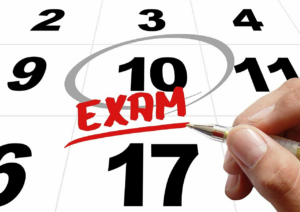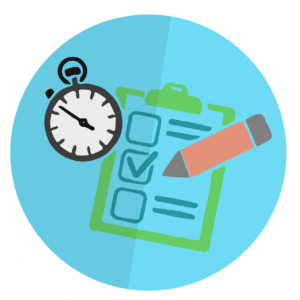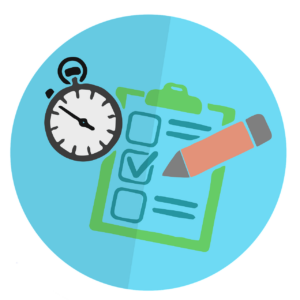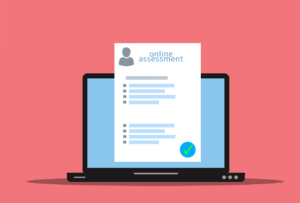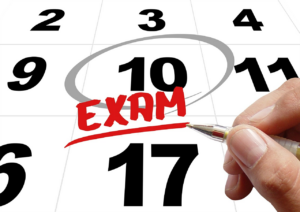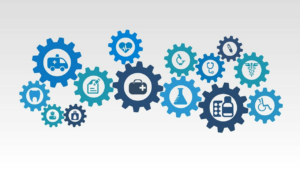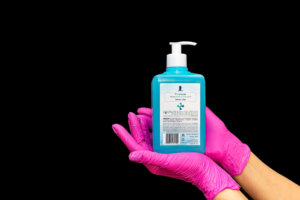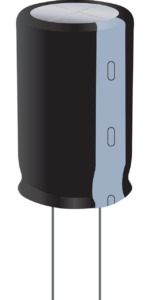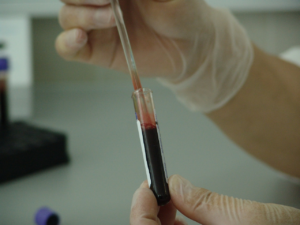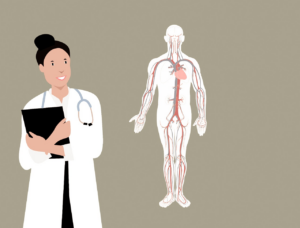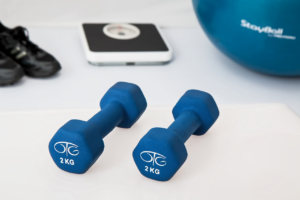Are you a nursing student preparing to take the NCLEX PN exam? Are you feeling overwhelmed and unsure of where to start studying?
Look no further than this comprehensive review and study resource focused on practice NCLEX PN exam questions.
With this resource, you will have access to a range of questions covering fundamental nursing care, pharmacology and medication administration, nursing process and critical thinking, and test-taking strategies.
These questions will help you gauge your knowledge and identify areas where you need to focus your studying. By utilizing practice questions and reviewing the explanations for both correct and incorrect answers, you will be better equipped to pass the NCLEX PN exam and become a licensed practical nurse.
Key Takeaways
- Practice questions are crucial for preparing for the NCLEX PN exam, improving retention, identifying knowledge gaps, building confidence, and familiarizing with exam format.
- Effective planning and time management, as well as elimination techniques, can increase chances of selecting the correct answer and passing the 5-hour NCLEX-PN exam.
- Reviewing rationales for both correct and incorrect answers and analyzing and learning from practice questions are imperative for enhancing performance and critical thinking skills.
- Prioritization techniques, good communication, and prioritizing mental health are important for providing safe and efficient care, building trust with patients, and managing anxiety in the nursing profession.
Fundamental Nursing Care
You’ll need to know the basics of fundamental nursing care if you want to excel on the NCLEX-PN exam. Personal hygiene is one of the most crucial aspects of nursing care. As a nurse, you’ll be responsible for ensuring your patients are clean and comfortable. This includes helping them with tasks such as bathing, brushing their teeth, and combing their hair. You’ll also need to make sure their clothes are clean and changed regularly.
By maintaining proper personal hygiene, you can prevent the spread of infections and keep your patients healthy.
Another important aspect of fundamental nursing care is patient communication. As a nurse, you’ll need to communicate effectively with your patients to ensure they understand their condition, treatment plan, and any potential side effects of medication. You’ll also need to listen to their concerns and provide emotional support.
Good communication can help build trust between you and your patients, which can ultimately lead to better health outcomes. When studying for the NCLEX-PN exam, make sure to brush up on your communication skills so you can provide the best possible care to your patients.
Pharmacology and Medication Administration
Administering medication requires a thorough understanding of pharmacology and the potential effects and interactions of various drugs. It’s important to follow proper protocols when administering medication to ensure that the patient receives the correct dosage and avoids any potential drug interactions. Here are some tips to keep in mind:
-
Always check the patient’s medical history to see if they have any allergies or previous adverse reactions to medication.
-
Double-check the medication order and dosage calculation before administering the medication.
-
Be aware of any potential drug interactions, especially if the patient is taking multiple medications.
-
Monitor the patient for any adverse reactions or side effects after administering medication.
Dosage calculation is also an important aspect of medication administration. Nurses must have a strong understanding of dosage calculations to ensure that patients receive the correct amount of medication. Here are some things to keep in mind:
-
Double-check the medication order and dosage calculation before administering the medication.
-
Use the appropriate measurement system (e.g. metric or household) when calculating dosages.
-
Be aware of any dosage restrictions based on the patient’s age, weight, or medical condition.
-
Always use the appropriate equipment (e.g. syringe, medication cup) when administering medication.
By following these guidelines and having a strong understanding of pharmacology and dosage calculations, nurses can effectively administer medication and ensure the safety and well-being of their patients.
Nursing Process and Critical Thinking
As a nurse, it’s important to develop strong critical thinking skills to effectively apply the nursing process and provide the best possible care for your patients.
The nursing process steps, which include assessment, diagnosis, planning, implementation, and evaluation, are essential in ensuring that your patients receive comprehensive and individualized care. However, critical thinking strategies are equally important in making informed decisions and providing safe and efficient care.
One of the critical thinking strategies that can be employed during the nursing process is prioritization. As a nurse, you will often have to make decisions about which tasks to complete first and which patients require immediate attention. By using prioritization, you can ensure that the most urgent needs are addressed first, which can ultimately lead to better patient outcomes.
Another important strategy is reflection, which involves taking the time to review your actions and decisions and considering how they could be improved. By reflecting on your practice, you can identify areas for growth and continuously improve your critical thinking skills.
Test-Taking Strategies
When it comes to test-taking, time management is key. You need to be able to pace yourself and make sure you have enough time to answer all the questions.
Elimination techniques can also be helpful when you encounter a difficult question. Prioritization is also important, as some questions may be more important than others.
Lastly, don’t let anxiety get the best of you. Take deep breaths and stay calm while you work through the exam.
Time Management
Managing your time effectively is crucial when taking the NCLEX-PN exam. Effective planning and time allocation will help you answer all questions within the allotted time.
The NCLEX-PN exam has a maximum of 5 hours to complete, which includes a tutorial, breaks, and the actual exam. It is essential to allocate enough time for each section of the exam to ensure that you do not run out of time.
Effective planning involves breaking down the exam into sections and allocating time for each section. For example, you could allocate two hours for the first section, which covers safe and effective care environment, and one hour for the second section, which covers health promotion and maintenance. This way, you will have enough time to answer all questions in each section without rushing through them.
Time allocation also involves pacing yourself during the exam. Do not spend too much time on one question as it may eat up your time and prevent you from answering other questions.
By managing your time effectively, you will be able to answer all questions confidently and increase your chances of passing the NCLEX-PN exam.
Elimination Techniques
Elimination techniques are crucial for effectively answering test questions within a limited time frame. One common mistake test-takers make is eliminating answer choices without fully understanding them. It’s important to read each answer choice carefully and eliminate those that are clearly incorrect. However, don’t rush to eliminate other choices without considering them thoroughly.
Sometimes, an answer choice that seems incorrect at first glance may actually be the correct one upon closer examination. Another effective elimination strategy is to look for key words or phrases in the question and answer choices. These can often give clues as to which answer choice is correct.
For example, if a question is asking about a nursing intervention for a patient with diabetes, look for answer choices that include words like ‘insulin’ or ‘blood sugar monitoring.’ These are likely to be the correct choices, while answer choices that don’t include these key words are likely to be incorrect.
By using effective elimination techniques, you can increase your chances of selecting the correct answer and ultimately passing the NCLEX-PN exam.
Prioritization
Prioritizing patient care is essential for success on the NCLEX-PN, as it requires the ability to identify which patient needs require immediate attention. Effective prioritization is a skill that every nurse needs to master, as it helps to ensure that patients receive the care they need in a timely and efficient manner.
Here are some prioritization techniques that can help you to improve your performance on the NCLEX-PN:
-
Use the ABCs – Airway, Breathing, and Circulation. These are the most critical body functions and should always be your top priority.
-
Consider the patient’s condition – Is the patient in pain? Are they experiencing discomfort or distress? Addressing these needs quickly can help to improve the patient’s overall condition.
-
Look at the timeline – Are there any tasks that need to be completed urgently? For example, administering medication on time is critical to ensure that the patient’s symptoms are effectively managed.
-
Consult with the patient’s healthcare team – Working together with other healthcare professionals can help to ensure that the patient’s care is coordinated, and that everyone is on the same page.
By mastering effective prioritization techniques, you can improve your performance on the NCLEX-PN and become a more effective nurse overall. Remember, always prioritize the patient’s needs and work towards providing the best possible care.
Dealing with Anxiety
Feeling overwhelmed and anxious during the nursing profession is common, but it’s important to recognize and address these emotions to prevent burnout and provide the best care for your patients. As a nurse, you may experience anxiety due to the high-pressure environment, long hours, and constant demands from patients and colleagues. However, there are several relaxation techniques and coping mechanisms that can help you manage these feelings and improve your mental health.
One effective relaxation technique is deep breathing exercises. When you feel anxious or stressed, take a few minutes to sit quietly and focus on your breath. Inhale deeply through your nose, hold for a few seconds, and exhale slowly through your mouth. Repeat this process several times until you feel your body relax. Another helpful coping mechanism is exercise. Regular physical activity can reduce stress and anxiety, improve mood, and increase overall well-being. Consider incorporating a daily walk or workout into your routine to help manage your emotions. Remember, taking care of yourself is just as important as taking care of your patients. By prioritizing your mental health and practicing relaxation techniques and coping mechanisms, you can improve your ability to handle stress and provide the best care possible.
| Relaxation Techniques | Coping Mechanisms | |||
|---|---|---|---|---|
| Deep breathing exercises | Exercise | |||
| Meditation | Journaling | |||
| Yoga | Time management | |||
| Guided imagery | Support groups | Talking to a therapist or counselor | Taking breaks and setting boundaries |
Utilizing Practice NCLEX PN Exam Questions
If you’re preparing for the NCLEX PN exam, one effective way to study is by utilizing practice questions. There are numerous benefits to using practice questions, such as improving your test-taking skills and identifying areas where you need to focus your studying.
You can find practice questions in NCLEX review books, online resources, and through your nursing program. To use practice questions effectively, it’s important to not just answer them, but also analyze and learn from them. Try to understand why you got a question wrong and what you could do differently in the future.
Benefits of Practice Questions
Using practice questions can enhance your understanding of the material and increase your chances of success on the NCLEX PN exam. Here are four ways in which practicing NCLEX PN exam questions can be beneficial for you:
-
Improves Retention: By practicing and reviewing multiple NCLEX PN exam questions, you can reinforce your understanding of the material and help commit it to memory. This can help you retain information more effectively and recall it more easily during the actual exam.
-
Identifies Knowledge Gaps: Practice questions can help you identify areas where you need to improve your knowledge and understanding. This can allow you to focus your study efforts on those areas and increase your chances of success on the exam.
-
Builds Confidence: The more practice questions you do, the more confident you’ll feel in your ability to answer questions on the actual exam. This can help reduce anxiety and stress, allowing you to perform better on the exam.
-
Familiarizes You with Exam Format: Practicing NCLEX PN exam questions can help you become more familiar with the exam format and style of questions. This can help reduce surprises on exam day and allow you to better manage your time during the exam.
Practicing NCLEX PN exam questions is an important and effective way to prepare for the exam. It can help you improve retention, identify knowledge gaps, build confidence, and familiarize you with the exam format. Incorporating practice questions into your study routine can greatly increase your chances of success on the NCLEX PN exam.
Where to Find Practice Questions
Now that you know the benefits of practicing NCLEX-PN exam questions, you may be wondering where to find them. Fortunately, there are plenty of online resources available that offer practice questions that mimic the actual exam. These resources can be incredibly helpful in preparing you for the exam and building your confidence in your knowledge and abilities.
One option is to search for free practice questions online. Many nursing websites and forums offer free practice questions and exams to help students prepare for the NCLEX-PN.
Alternatively, you may consider investing in a paid review course that offers access to a comprehensive bank of practice questions. These courses often come with additional study materials, such as video lectures and review books, that can further enhance your understanding of the exam content.
Regardless of which option you choose, regularly practicing NCLEX-PN exam questions is crucial to your success on the exam.
How to Use Practice Questions Effectively
Mastering the art of utilizing mock tests can greatly enhance your chances of acing the NCLEX-PN exam. However, simply answering practice questions is not enough to ensure success. Effective strategies are necessary to maximize your results and make the most out of your study time.
Firstly, it’s important to approach practice questions with a purpose. Don’t just answer them for the sake of getting through them. Instead, focus on identifying your weaknesses and areas that need improvement. Use the questions as an opportunity to review the material and reinforce key concepts.
Additionally, it’s crucial to review the rationales for both correct and incorrect answers. This will help you understand the reasoning behind each answer choice and improve your critical thinking skills.
Finally, take note of any recurring themes or types of questions that you struggle with. This will allow you to focus your studying on those specific areas and improve your overall performance.
Practice questions are an invaluable resource for anyone preparing for the NCLEX-PN exam. However, it’s important to use them effectively in order to maximize your results. By approaching them with a purpose, reviewing rationales, and identifying recurring themes, you can improve your understanding of the material and increase your chances of success.
Tips for Analyzing and Learning from Practice Questions
Employing effective strategies to analyze and glean insights from mock tests is imperative for enhancing your performance and achieving success on the NCLEX-PN assessment. Here are three tips to help you analyze and learn from practice questions effectively:
-
Review the rationales: After answering a question, take the time to read the rationale thoroughly. This will help you understand why the correct answer is right and why the incorrect answers are wrong. Make sure to pay attention to the key phrases and words in the rationale, as these can provide important clues for future questions.
-
Identify patterns: As you complete more practice questions, you may start to notice patterns in the types of questions being asked or the content being covered. Keep track of these patterns by taking notes or creating flashcards. This can help you focus your studying efforts and identify areas where you may need additional practice.
-
Use the questions as a learning tool: Practice questions aren’t just a way to assess your knowledge, but also a way to learn new information. As you review the questions, make note of any concepts or information that you’re unfamiliar with. Use your textbooks or other study resources to review and learn more about these topics.
By utilizing these analyzing techniques and learning strategies, you can make the most out of your practice questions and increase your chances of success on the NCLEX-PN exam.
Frequently Asked Questions
What is the passing score for the NCLEX PN exam?
To pass the NCLEX PN exam, you need to achieve a minimum score requirement set by the National Council of State Boards of Nursing (NCSBN). The passing score for the NCLEX PN exam is determined by a computerized adaptive testing (CAT) algorithm that adjusts the difficulty level of the questions based on your performance.
As a result, there is no fixed passing score for the NCLEX PN exam. However, the NCSBN recommends that you prepare for the exam by following a well-structured NCLEX PN exam preparation timeline and study schedule. This will help you to cover all the essential topics, practice exam-style questions, and improve your test-taking skills.
By doing so, you will increase your chances of passing the NCLEX PN exam on the first attempt.
How long does it typically take to prepare for the NCLEX PN exam?
To prepare for the NCLEX PN exam, you should come up with study strategies and manage your time wisely. The amount of time it takes to prepare for the exam varies depending on your current knowledge and skill level.
It’s recommended that you spend at least 6-8 weeks studying for the exam. During this time, you should focus on reviewing the content, taking practice exams, and identifying your weak areas.
To effectively manage your time, create a study schedule and stick to it. Make sure to take breaks and get enough rest to avoid burnout.
Remember, consistent studying and effective time management are key to success on the NCLEX PN exam.
Can you take the NCLEX PN exam online or do you have to go to a testing center?
You can’t take the NCLEX PN exam online. It’s required that you go to a testing center to take the exam. The testing center ensures that the exam is administered properly and that there is a secure environment for the exam taker.
The NCLEX PN exam is a crucial step in obtaining your nursing license, so it’s important that you follow the testing center requirements to ensure that you’re able to take the exam and pass it successfully. While it may be more convenient to take the exam online, it’s necessary to attend a testing center to ensure that the exam is administered properly and that there is no cheating or misconduct.
What happens if you fail the NCLEX PN exam?
If you fail the NCLEX PN exam, don’t worry, you’re not alone. It’s quite common for people to fail on the first attempt.
The good news is that you can retake the exam, but you’ll have to wait at least 45 days before you can take it again. You may also have to pay another fee.
If you fail again, you’ll have to wait another 45 days and pay the fee again.
However, if you’re sure that you did everything right and there was an error in the scoring process, you can appeal the results. You’ll have to follow a specific process and provide evidence to support your appeal.
The appeal process can take several weeks, so it’s best to prepare for the possibility of needing to retake the exam instead of relying on the appeal process.
Are there any accommodations available for test takers with disabilities?
If you have a disability and are planning to take the NCLEX PN exam, there are accommodations available to help you. The National Council of State Boards of Nursing (NCSBN) provides disability support to test takers who need it.
Depending on your disability, you may be eligible for accommodations such as extra time, a separate testing room, or assistive technology. To receive these accommodations, you must submit documentation of your disability and your accommodations request to the NCSBN. They will then review your request and determine which accommodations are appropriate.
It’s important to note that the accommodation request process can take several weeks, so be sure to plan ahead.
Conclusion
Congratulations! You’ve completed a comprehensive review and study resource on practice NCLEX PN exam questions.
By focusing on fundamental nursing care, pharmacology and medication administration, nursing process and critical thinking, and test-taking strategies, you’ve equipped yourself with the knowledge and skills needed to pass the exam.
Remember to utilize the practice questions provided to refine your test-taking abilities and identify areas that need improvement.
With perseverance and dedication, you can confidently approach the NCLEX PN exam and achieve your goals.
So take a deep breath, believe in yourself, and go ace that exam!








